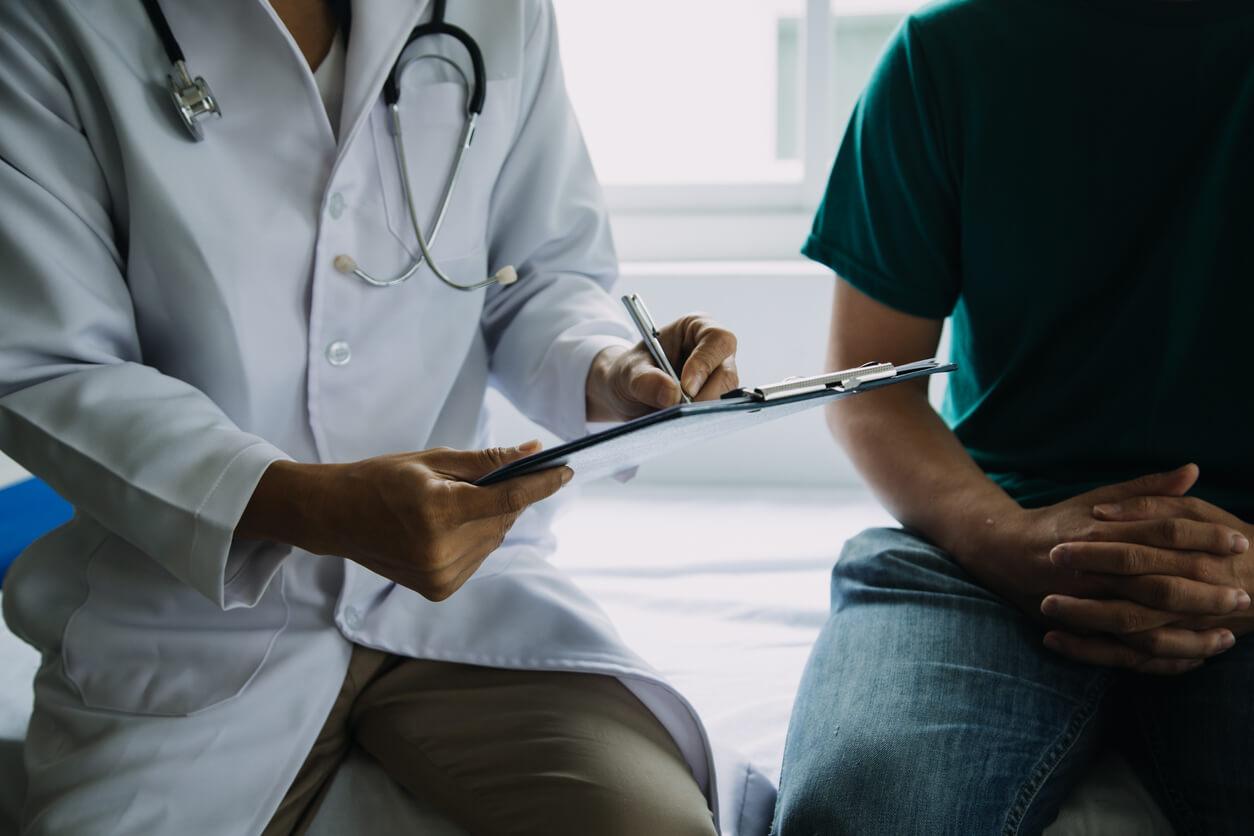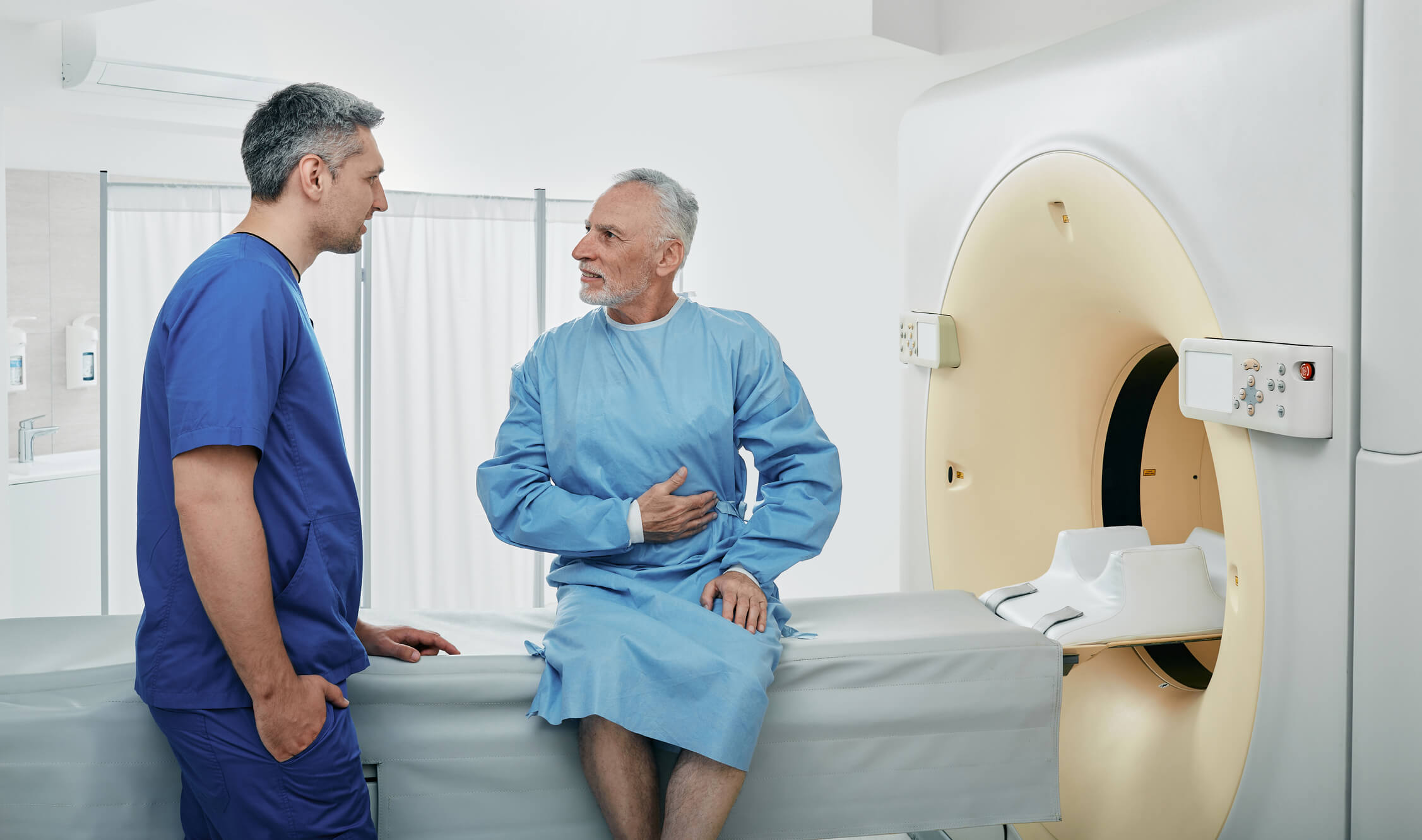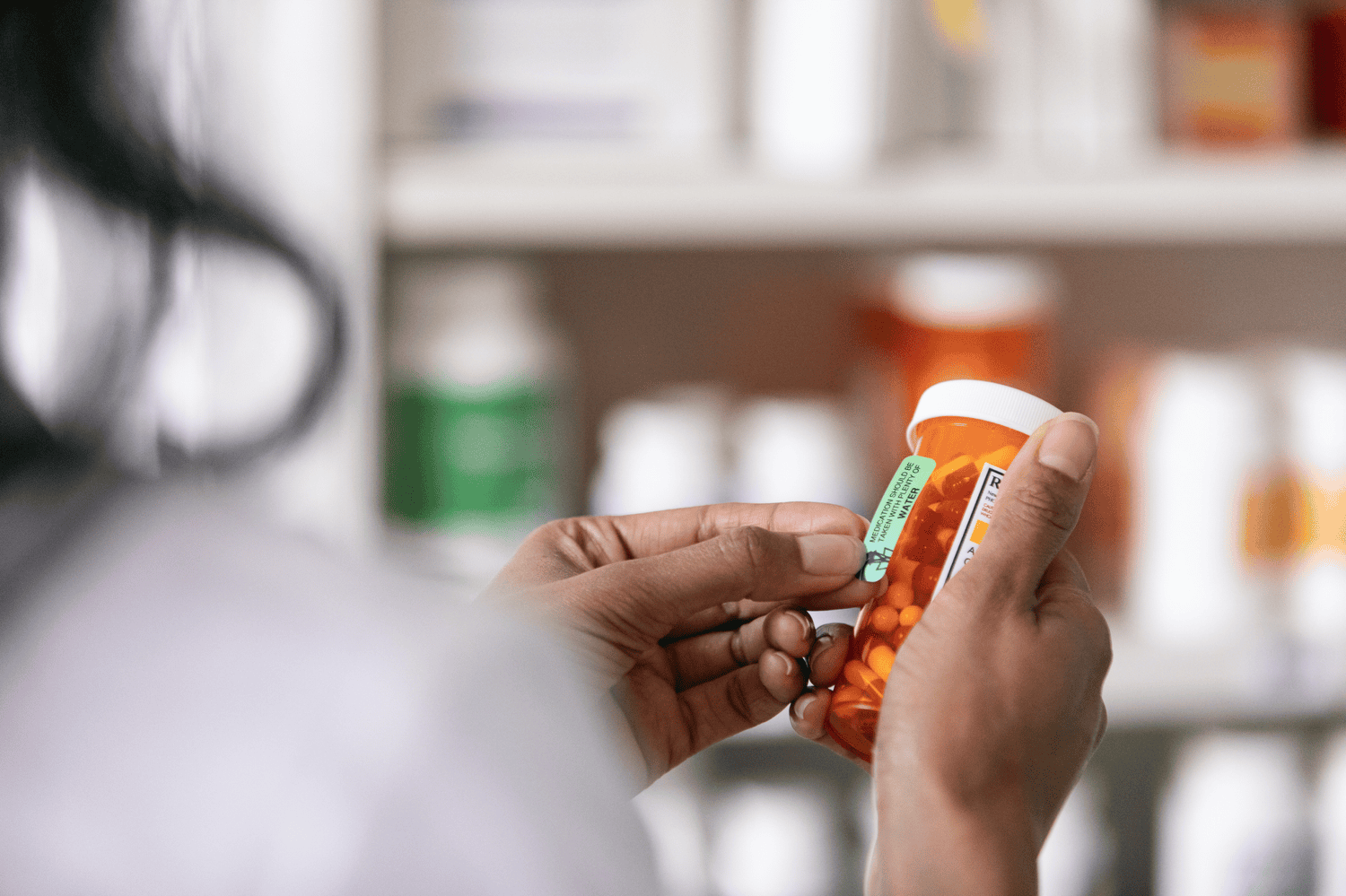Colorectal Cancer Awareness: What You Need To Know
What to expect during a colorectal screening, when you should start getting screened for colorectal cancer, and more
March marks the start of National Colorectal Cancer Awareness Month, which is a critical time to raise awareness of a misunderstood and under-discussed disease. Unfortunately, colon cancer is the second-leading cause of cancer death in the United States, which is why it’s critical to talk about the importance of early detection and colorectal cancer screening.
We spoke to Dr. Adam Moskowitz, MD – a gastroenterologist from New York with over 18 years of clinical experience – for input on colorectal screening tests, what to expect during a colorectal screening, when you should start getting screened for colorectal cancer and more.
What is colorectal cancer?
Colorectal cancer is a type of cancer that affects the colon (colon cancer) or rectum (rectal cancer). It is one of the most common cancers in the U.S., and it’s estimated by the American Cancer Society that more than 100,000 new cases will be diagnosed in 2023 alone.
Colon cancer tends to develop from abnormal growths (known as polyps) in the colon. These polyps are non-cancerous but may turn cancerous if they are left untreated. By detecting and removing abnormal growths and precancerous polyps in the colon and rectum, doctors can help prevent the progression of colorectal cancer – often stopping the disease before it occurs. Because of this, colorectal screening tests play a crucial role in preventative care.
What are the symptoms of colorectal cancer?
Unfortunately, colorectal cancer is extremely difficult to detect without screenings because it is considered a silent disease - most of the time, there are no symptoms.
“I always tell my patients that the number one symptom of colon cancer is nothing, meaning that it’s a “silent” disease,” says Dr. Moskowitz. “That’s why screenings are vital. Prevention is the best way to tackle this problem.”
However, if you have any of the following conditions, you should contact your doctor and start a conversation about GI screenings right away: blood in the stool, rectal bleeding, unexplained weight loss, stomach cramps, or any vague symptom or change in bowel habits that can’t be explained otherwise can be an indication of a more serious problem.
What is a colorectal screening?
Colorectal screening tests are routine procedures used to find disease when no symptoms are present. There are 3 main types of colorectal screenings: stool testing, x-ray testing and endoscopic (colonoscopy) testing.
Stool Testing
A stool test is a diagnostic technique in which fecal matter is collected and analyzed. You can either have this performed by your doctor or purchase an at-home testing kit (the most well-known stool test option is Cologuard). For the latter, you are typically mailed a kit that is hooked up to your toilet, and then you do your business. Then, you mail it back to them. With 92-93% accuracy, they’re able to detect colon cancer by looking for DNA material that’s specific to colon cancer and/or blood in your stool. If it comes back negative, you should be examined in three years. If it’s positive, the next step is a colonoscopy.
X-Ray Testing
An older technique, barium enemas are typically thought of as “less invasive” than a colonoscopy. For this type of test, you go to a radiologist who will use a CT scan to watch your system as barium moves through it. It’s good to keep in mind that this test does require the radiologist to put some air into the colon (so it’s not really as non-invasive as you may think). “You should also be mindful of the effect of radiation on your body,” says Dr. Moskowitz. “Although CT scans are amazing, one CT scan has the same amount of radiation as 30 packs of cigarettes.” If the radiologist finds something of potential concern, the next step is a colonoscopy.
Colonoscopy
A colonoscopy, also known as a coloscopy, is a procedure in which a small fiber optic camera attached to a flexible tube is passed through the anus in order to examine the large bowel and part of the small bowel. “Yes, the prep can be lousy,” says Dr. Moskowitz, "but a colonoscopy is so effective - it allows your GI doctor to see the entire colon from end to end.”
Not only can doctors detect abnormalities with a colonoscopy, but they can start to act right away if they do find something – for example, if your doctor sees a small polyp, they can remove it right then; they can get substantial tissue samples; they can even mark the area for the surgeon with a small tattoo so that your surgery (if needed) is more efficient and less exploratory.
The downsides to colonoscopy include that it does involve some level of anesthesia, and with that, can always come risks. There is also a small risk associated (1 in 3,000) with creating a hole or tear in a colon during the procedure.
So what’s the best colorectal screening option? “As I tell my patients,” says Dr. Moskowitz, “the only option I don’t agree with is doing nothing.”
What should I expect during a colorectal screening?
While stool testing is typically done from your home, x-ray testing and colonoscopies require a bit more preparation.
If you’re opting for a barium enema, a doctor will use a small tube to pump air into your bowel, and then use an x-ray to track the air as it flows through your bowel. Patients are normally awake for this procedure. It may feel a bit embarrassing, but this procedure actually feels similar to having trapped wind. It’s likely that you may experience a little bloating or some gas cramps for a short time after the enema is administered, but it should not feel painful.
If you’ve chosen a colonoscopy as your screening method, your doctor will provide you with specific instructions prior to your procedure in order to make sure that the imaging from the camera is as clear as possible. You will most likely be instructed to follow a special liquid diet and take a laxative the day before (and day of) the exam to ensure that your bowels are clear. Patients are almost always sedated (put to sleep) or given anesthesia for the procedure, which prevents them from feeling anything.
When should I start getting screened for colorectal cancer?
“These guidelines have changed over recent years,” says Dr. Moskowitz. “Routine screenings used to be recommended for both men and women between the ages of 50-75. However, we found the rate of colon cancer has actually increased in the under-50 category (though it has receded in the older age groups), so now the guideline is to start screening people of both genders at age 45.”
In terms of screening frequency, you should get screened every 5 years once you’re 45 and older. If you have a family history of colorectal cancer, your doctor will most likely suggest more frequent screenings due to a higher cancer risk.
“Early detection saves lives. I’d still discuss the possibility of getting screened with someone in good health and quality of life in their 80s,” says Dr. Moskowitz.
Are there ways to prevent colorectal cancer?
There are many lifestyle changes that can reduce your risk for colorectal cancer (and other serious health conditions) such as engaging in physical activity, eating a healthy diet full of fiber, limiting red meat intake, avoiding processed meats, avoiding smoking and limiting alcohol use. You can also talk to your doctor about getting tested for genes associated with an increased risk of colorectal cancer.
However, screening and early detection are always key in helping to diagnose colorectal cancer at an earlier stage when treatments are more successful. Regular screenings can also help identify if you're at risk for colorectal cancer before any signs or symptoms develop, making them even more important for cancer prevention. Age, family history and other risk factors play a part in when you should start screening, and how often you should go in for screening, but it is generally agreed that once you reach the age of 45 – man or woman – you should be getting screened.
If you have any questions about colorectal screening tests, symptoms you want to discuss, or concerns about your health history, talk to a health care provider today. With online video consults available, you can get the answers you need right away – all without having to set foot in a clinic. Book a convenient and affordable video visit today to get started on preventative care and take control of your health.







